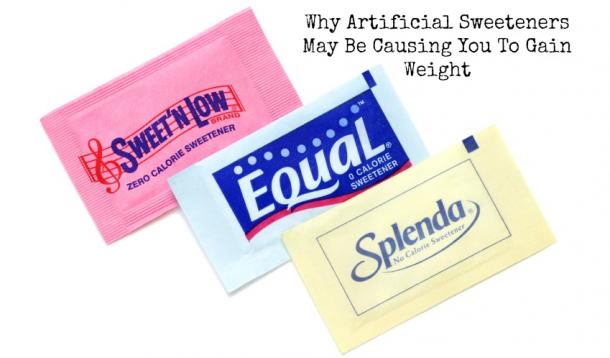
If you consume artificial sweeteners such as Splenda (sucralose), Equal (aspartame) and Sweet n' Low (saccharine), you may be putting yourself at risk of metabolic disorders such as Obesity and Type 2 Diabetes, a recent study suggests.
According to a study that was released last week in the journal Nature, the zero calorie sweeteners that are widely consumed in North America in the form of diet soda, sugar-free gum and sweetener for coffee, as a healthy alternative, may actually pose the same metabolic risks that real sugars do. Researchers found that when they fed mice and humans artificial sweeteners such as saccharin, the bacteria naturally found in the gut ("intestinal microbiota" ) were altered. The composition and functionality of these bacteria changed in the presence of artificial sweeteners, and then led to a rise in blood sugar--the very thing that consumers are trying to avoid when using artificial sweeteners. This means that if someone consumes artificial sweeteners often--everyday or multiple times a day, let's say--this may lead to health problems.
As you can imagine, this study and its findings have taken the internet by storm, creating huge buzz, conversation and debate over whether or not it is safe to consume zero calorie sweeteners. Many readers have declared that they will not touch their favourite diet beverage or a package of Splenda ever again, while others are taking this study with a grain of salt.
Although it is never smart to take one study and base all of your food decisions on it, this particular study and its findings are very important--it will hopefully lead to more research on the short-term and long-term effects of artificial sweeteners. What it tells us is that artificial sweeteners may be too good to be true and that they may in fact be contributing to unhealthy weight gain which can lead to common metabolic disorders such as Type 2 Diabetes and Metabolic Syndrome. They may not be the "magic solution" to weight control that so many people swear by.
What we know for sure is that artificial sweeteners are not healthy. They don't provide nutritional value to foods or beverages and from what I've observed both in my private nutrition practice and personally, they increase the desire for sweet, and raise the "sweet taste threshold" for people (artificial sweeteners are typically much sweeter per gram than sugar or other "nutritive sweeteners"), which may lead to more sugar consumption overall. This could lead to unhealthy weight gain over time.
Does this mean that you should swear off of artificial sweeteners all together? Not necessarily. Until we have more evidence to suggest that they pose a significant health risk, there is no need to panic. If you're able to enjoy artificial sweeteners once in a while, I wouldn't worry too much about it. If you feel as though you can't go a day without consuming some form of artificial sweetener, however, you might want to cut back. You shouldn't feel a sense of dependance on artificial sweeteners, so if you feel you do, it's time to start weaning yourself off. If you're able to avoid them all together, all the better.
My suggestion, if you consume artificial sweeteners (or a lot of added sugar for that matter) regularly, is to cut back on "sweet" all together so that your "sweet taste threshold" decreases over time. In other words, you'll require less sweet taste to feel satisfied after consuming something. For example, if you add Splenda to your coffee in the morning or order a "sugar-free vanilla latte" everyday, start using half as much Splenda, or start ordering your latte "half sweet". As you continue to decrease the amount of sweetness in your foods and beverages, your taste buds will adapt and you will start to crave less sweet all together. Once this happens, you may find that artificially sweetened foods are just too sweet for you, which is not such a bad thing.
Did you know that these 10 "health foods" aren't healthy at all?
And here is the only thing you need to read on a nutrition label.
Check out my Facebook page, where I regularly post free nutrition tips, recipes and resources.